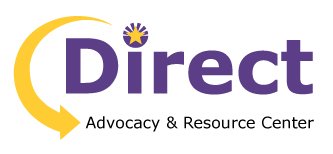April is Occupational Therapy Month!
Occupational therapists (OTs) and occupational therapy assistants (COTAs) help people live meaningful, independent lives in various ways. Here at Direct, Jocelyn Lewis, our resident OT, has worked with both children and adults with neurological disorders. Helping them not only with physical rehabilitation but teaching invaluable Independent Living skills like making meals, dressing, managing medications, driving, exercising, and money management.
Occupational therapy is provided in many different settings throughout the community and includes several specialty areas like low-vision therapy, hand therapy, driving rehabilitation, and home modifications. In addition, occupational therapy has long recognized the mind-body connection and is often identified alongside speech and physical therapy professionals.
Other examples of OT include:
Helping a youth with Autism who is transitioning out of high school learn how to fill out a job application and practice specific job skills (i.e., filing, answering phones, stocking shelves)
Re-training a person with a spinal cord injury on how to do activities of daily living (ADLs) such as showering and dressing using adaptive equipment and techniques
Conducting a home modification assessment for an older adult who had a stroke to provide recommendations on how to improve safety and accessibility in the home (i.e., installing grab bars in the bathroom, converting a tub to a barrier-free shower, adding auto on/off nightlights in a dark hallway)
If you think you could benefit from occupational therapy, please talk to your primary care doctor about getting a referral.
For more information on occupational therapy please visit:
FUN FACT:
Did you know the profession of occupational therapy was founded during World War I out of the need to assist wounded soldiers returning home from war? Through the use of arts and crafts and vocational skills, recovering soldiers were able to participate in meaningful activities that boosted their morale.
Celebrating AOTA’s Centennial: A Historical Look at 100 Years of Occupational Therapy
